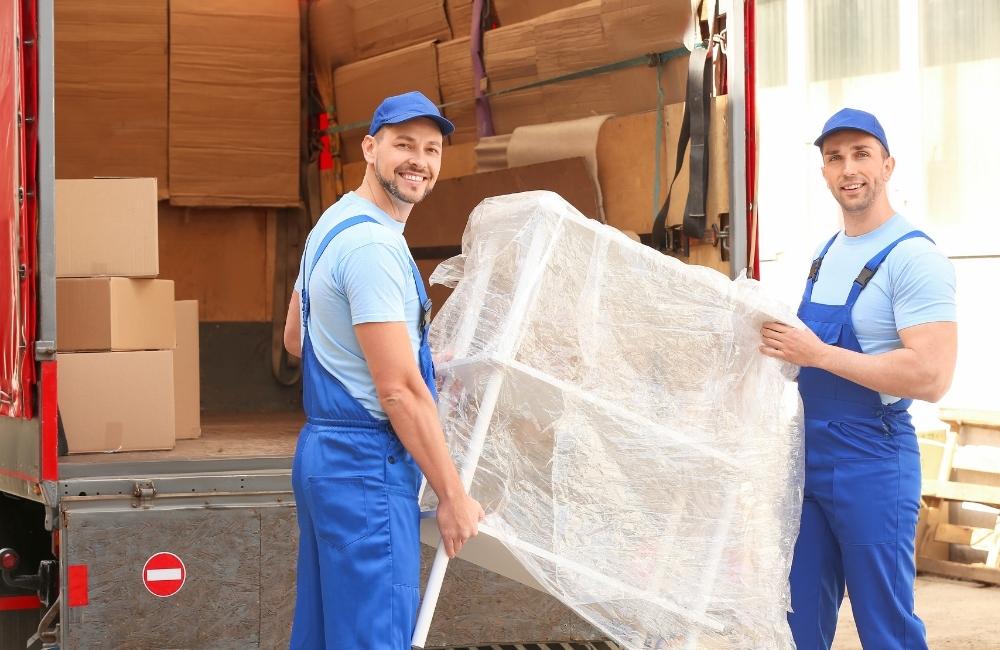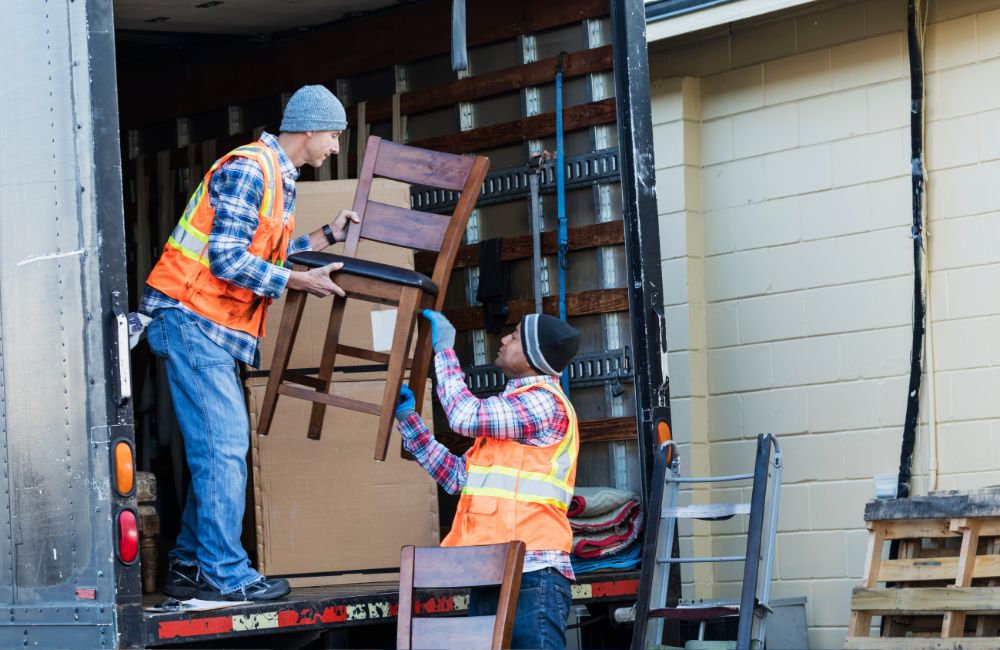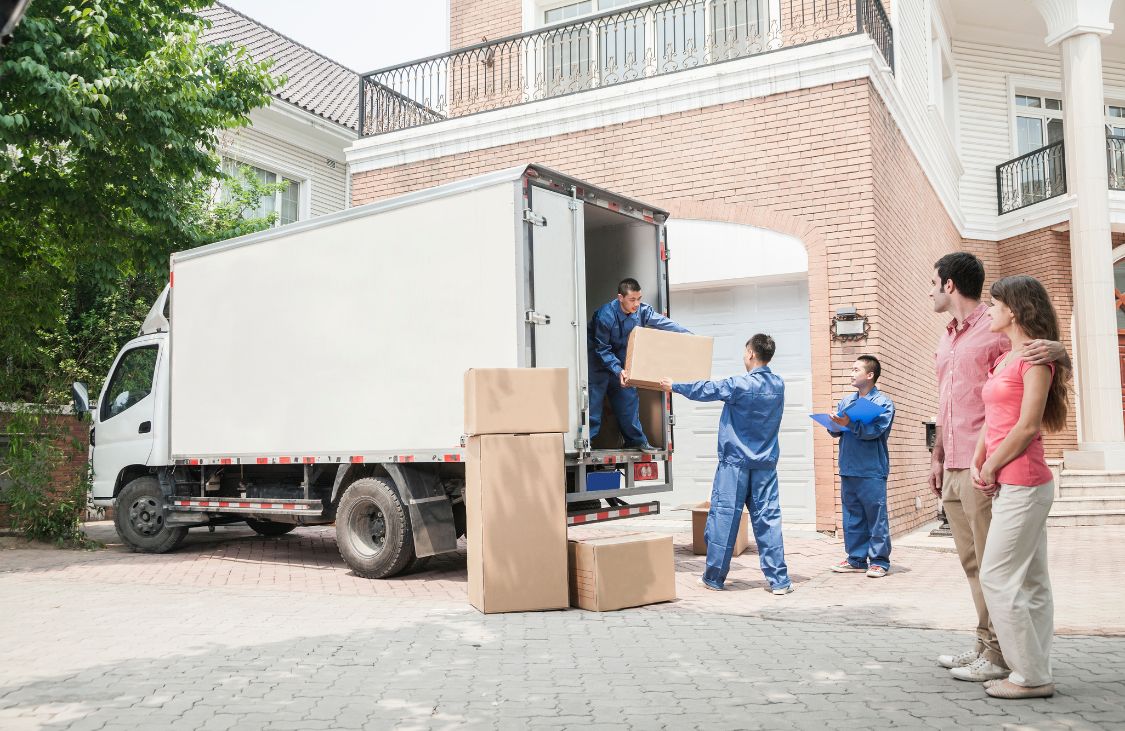Tipping movers often sparks uncertainty, especially when the bill is already high and the physical effort behind the service feels immense. Unlike dining out or ordering delivery, there’s no standard rulebook for how much to tip—or whether tipping is expected at all. Many people wonder what’s fair, what’s optional, and what shows appreciation without going overboard.
Here are five essential insights to help clarify the question: Should you tip movers?
Table of Contents
Key Takeaways✔ Tipping movers is customary and typically ranges from 10% to 20% of the total bill. ✔ Quality of service, job difficulty, and crew professionalism should influence tip amounts. ✔ Each moving crew should be tipped separately if multiple teams handle different tasks. ✔ Cash is preferred, but digital tips or gift cards are sometimes acceptable. ✔ Tips are appreciated but not required, especially during short or small moves. ✔ Tipping for packing and unpacking help is common when those services are included. ✔ Working with a reputable local moving company makes it easier to follow proper tipping etiquette. |

How Much Should You Tip Movers?
Most moving professionals agree that tips typically range from 10% to 20% of the total bill, depending on service quality, job difficulty, and overall experience. For small local moves, $20 to $40 per mover is common, while larger or long-distance moves may call for $50 or more per person.
Crews who handle packing, furniture assembly, or challenging conditions often warrant higher tips, especially when offering exceptional service. Some people prefer a flat amount per mover, while others calculate a percentage to split among the team.
When asking should you tip movers, it helps to consider the full scope of their work and choose an amount that feels fair and appreciative.
5 Key Factors That Determine How Much to Tip Movers
1. Size and Complexity of the Move
The scale of the move plays a big role in how much effort movers must put in. A small apartment takes far less time and labor than a five-bedroom house with heavy furniture and awkward stairwells. When considering should you tip movers, it’s helpful to assess how physically demanding the job really was.
How Larger Homes Add to Mover Workload
- More Rooms Mean More Labor: Each room adds hours of packing, lifting, and loading. Movers handling large homes are often on-site for a full day or longer.
- Bulky Furniture Takes More Effort: Items like sectionals, armoires, and treadmills require two or more people to move safely. This added strain should be considered when thinking about tipping.
- Navigating Tight Spaces Increases Difficulty: Moving heavy items through narrow doorways or down staircases takes extra skill and caution. These challenges are a key reason why tipping etiquette for movers often reflects the complexity of the space.
2. Quality of Service Provided
Tipping often comes down to the experience provided throughout the move. When movers show up on time, handle items with care, and maintain a positive attitude during a long day, that level of professionalism deserves recognition. Evaluating service quality helps answer the question many ask: should you tip movers?
How Professionalism Impacts the Tipping Decision
- Attitude and Communication Set the Tone: Movers who explain the process clearly, give updates during the day, and handle requests with patience make the experience less stressful. A courteous crew often makes the entire move feel smoother and more organized.
- Care Taken With Belongings Builds Trust: Watching movers wrap furniture properly, use lifting straps, and avoid scuffing floors shows respect for people’s property. That attention to detail is a major reason why many support generous tipping etiquette for movers.
- Problem-Solving Shows Dedication: Every move comes with a surprise—tight corners, oversized sofas, or an elevator that stops working. When movers adapt calmly and come up with smart solutions, it often leads to higher tips and positive reviews.

3. Type of Services Performed
Not every move is just about loading a truck. Some moves involve multiple services like boxing up fragile items, unpacking at the new place, or assembling furniture. These extra tasks often raise the question of how much should you tip movers, especially when considering tipping for packing and unpacking help.
Why Add-On Services May Deserve More
- Packing Requires Skill and Speed: Movers trained in packing know how to protect glassware, electronics, and artwork using the right materials. This specialized service takes time and attention, which makes tipping for packing and unpacking help both common and appreciated.
- Unpacking Adds to Physical Demands: When movers go beyond delivery and help unpack, it extends the day and adds effort. Unpacking also requires care—especially with kitchens, bedrooms, and breakables.
- Furniture Setup Involves Tools and Patience: Assembling bed frames, shelving units, or desks can be frustrating and time-consuming. Crews that stick around to finish the job offer a level of service that often affects how much people tip.
4. Duration and Timing of the Move
Time matters when it comes to tipping. Moves that stretch across long hours, tight timelines, or extreme conditions take more out of a crew. Whether the move starts at dawn or stretches into the evening, time is a real factor in deciding should you tip movers.
How Time and Conditions Affect Effort
- Long Hours Increase Fatigue: An eight- to ten-hour move is physically exhausting. Crews that power through without complaining often earn higher tips as a thank-you for their endurance.
- Last-Minute Moves Add Pressure: Moves booked on short notice leave less time to plan or prepare. When movers step in and perform well under pressure, many see that as a reason to follow good tipping etiquette for movers.
- Extreme Weather Requires Extra Grit: Moving in rain, heat, or snow can be dangerous and uncomfortable. Crews who maintain safety and service in tough conditions often receive more generous tips.
5. Type of Moving Company and Crew Size
Not all movers operate the same way. A large national carrier may send different teams for loading and unloading, while a tipping local moving company might provide one consistent crew from start to finish. Understanding the setup helps determine how and who to tip.
Why Company Structure Influences Tipping
- Multiple Crews Require Separate Tips: Long-distance moves often involve one team loading and another unloading. Each team puts in full effort, so many people choose to tip each group separately.
- Smaller Local Teams Build Rapport: A tipping local moving company often provides personalized service. Crews from smaller companies tend to work closely with clients, and that connection frequently results in more thoughtful tips.
Team Size Impacts Individual Effort: Two movers doing the work of four are likely under more strain. Fewer hands mean more lifting per person, and that can influence both how much to tip and whether to tip each mover directly.
How to Handle Tipping for Last-Minute or Emergency Moves
Unexpected moves can create stress for both the person relocating and the moving team handling the heavy lifting. These high-pressure situations require flexibility, speed, and professionalism—making it even more important to understand how to tip fairly and show appreciation for quality service.
In fact, a survey by Angie’s List found that 76% of participants were satisfied with their movers, and 81% would hire them again, highlighting the value of respectful, professional interactions.
1. Plan Tip Amounts Before the Crew Arrives
Even in urgent situations, it’s worth setting aside time to estimate what a fair tip will look like. Consider the base rate of 10% to 20% of the final bill, and adjust upward for speed, care, and coordination. Planning ahead answers the common question: should you tip movers, especially when they show up on short notice.

2. Recognize Effort During Compressed Timelines
Last-minute moves often require movers to work faster and smarter than usual. Crews that hustle while still protecting furniture, fragile items, and tight spaces deserve recognition. When the job wraps up smoothly under tight conditions, it’s a clear case for tipping local moving company crews appropriately.
3. Consider Additional Stress and Limited Resources
Urgent moves usually don’t allow for ideal schedules or full crews. Professionals who step in despite staff limitations or chaotic timelines are going above basic expectations. A thoughtful tip reflects gratitude for those who take on a job others might have declined—especially when tipping for packing and unpacking help is involved.
4. Adjust for After-Hours or Weekend Moves
Emergency moves sometimes happen outside regular business hours—late at night, early morning, or on a Sunday. These jobs often mean personal sacrifice or rearranged schedules for the crew. Recognizing that effort with a meaningful tip aligns with respectful tipping etiquette for movers.
5. Tip Separately if Multiple Teams Are Involved
Some emergency moves involve one team packing and another unloading at a different site. When services are split, each crew should be tipped individually based on the work performed. This becomes especially important when considering tipping for packing and unpacking help during segmented or multi-location moves.
6. Go Beyond the Minimum When Service Is Outstanding
There’s no standard for tipping during high-stress moves—but when professionals show up on time, protect every item, and stay kind under pressure, that matters. A tip above the typical range reinforces the value of excellent work. For anyone asking should you tip movers during a rush job, the answer often becomes clearer when quality stands out.

What to Expect From Professional Movers on Moving Day
Knowing what to expect from professional movers helps ease stress and sets realistic expectations. Licensed and experienced crews follow a structured process to ensure the move is safe, efficient, and handled with care—insight that also helps when deciding whether to tip, especially when service exceeds expectations. This attention to quality may explain why the moving services market has grown at a 2.7% annual rate over the past five years.
1. Arrival Within the Scheduled Window
Professional movers typically arrive within a confirmed time window, ready with the tools and materials needed for the job. They’ll check in with the customer or point of contact, confirm the scope of work, and walk through the space before getting started. This early communication reflects reliable service and sets the tone for proper tipping etiquette for movers.
2. Protecting Floors, Doors, and High-Traffic Areas
Before moving any boxes, movers often lay down floor runners and pad door frames to prevent damage. This level of attention shows respect for the space and helps prevent costly accidents. Crews from a tipping local moving company usually take extra steps to protect property—especially in homes with delicate surfaces or narrow entryways.
3. Careful Wrapping and Loading of Furniture
Movers disassemble large pieces when needed and use thick blankets, shrink wrap, or padding to secure furniture. Items are loaded methodically to maximize truck space and prevent shifting during transit. This part of the job often guides how should you tip movers based on how carefully and skillfully items are handled.
4. Heavy Lifting and Coordination as a Team
Moving large or awkward items like couches, appliances, or safes takes both strength and communication. Teams coordinate to move through tight hallways or down stairs safely, without damaging walls or belongings. This is where tipping local moving company teams for teamwork and hustle often comes into play.
5. Handling Fragile or Special-Request Items With Extra Care
If a customer has fragile boxes, antiques, or labeled high-priority items, movers set those aside for safer handling. These may be packed separately or secured in the truck last for easier access. When this kind of care is shown, it often strengthens the case for tipping for packing and unpacking help.
6. Final Walkthrough and Paperwork Before Departure
Once the truck is loaded, movers will walk through the space one last time to make sure nothing was left behind. They’ll also confirm the inventory and review any documents for billing or liability. A smooth wrap-up signals professionalism and often answers the question, should you tip movers, with a confident yes.
Frequently Asked Questions (FAQs)
If a move is canceled the day of or while the crew is en route, movers don’t usually expect a tip—but may still receive a cancellation fee from the company. That said, if movers arrive and begin work before the cancellation occurs, a small tip is often appreciated as a gesture of goodwill. Understanding tipping etiquette for movers in rare situations like these helps avoid awkwardness and shows professionalism. A respectful conversation is usually the best way to handle it.
When a move involves temporary storage—either in a truck, warehouse, or portable container—the process usually requires extra steps and time. Movers often load belongings with greater precision to ensure items remain stable during storage, which can be more demanding than a direct move. In these cases, should you tip movers differently? Many do tip slightly more when storage is involved, especially if it includes loading, hauling, and later unloading at a separate location.
While cash is the most direct and widely preferred method, some movers appreciate gift cards, especially for gas stations, restaurants, or grocery stores. It’s a thoughtful option when cash isn’t available, but it’s best to ask or check with the crew lead first. When working with a tipping local moving company, crews may be more flexible and personal in their preferences. No matter the form, showing appreciation reflects good tipping etiquette for movers.
Summer is the peak season for movers due to school breaks, favorable weather, and high demand, which often leads to longer days and tighter schedules. While tipping isn’t automatically higher, many people increase tips to reflect the extra heat, pace, and effort during busy months. In particular, when moves include stairs, large loads, or tight timeframes, it often influences how people approach tipping for packing and unpacking help. A summer move may require more patience from everyone involved, including the crew.
Long carries—where movers must walk extended distances between the truck and entrance—add significant effort and time. If a property has no nearby parking or involves long hallways, tipping more is a way to recognize that extra physical labor. In these cases, many reconsider how much should you tip movers, even if the rest of the job is straightforward. Addressing tough conditions with appreciation reflects smart, respectful tipping etiquette for movers.

Book Reliable Commercial Moving Services with Commercial Movers By Best
When it’s time to move a business, timing, care, and coordination matter—and that’s exactly what Commercial Movers By Best delivers in White Plains, NY. Our professional crews handle office relocations, equipment moves, and workspace transitions with efficiency and minimal disruption. Whether it’s a corporate office, retail store, or specialty facility, this team knows how to get the job done right.
For dependable commercial moving services backed by experience and attention to detail, reach out to Commercial Movers By Best today.

